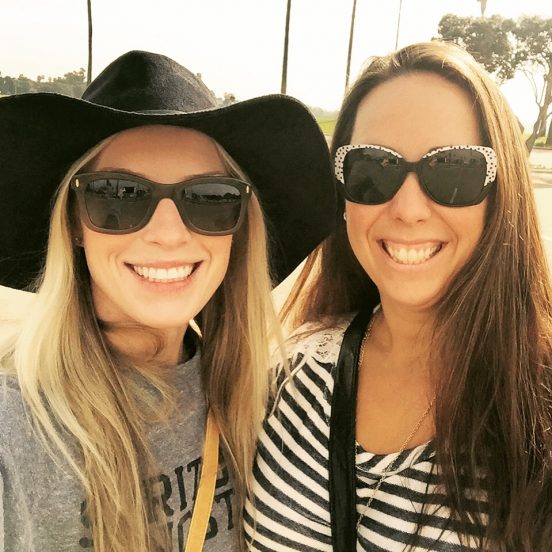Gymnastics has always been my happy place. As a kid, I wanted to be at the gym all the time. It was easy to leave my troubles at the door and come to practice with an open mind to learn. I loved how it taught me to focus and work hard. It was the values I learned as an athlete, that excited me to become a coach.
I have learned that values are essential to performance as a coaching professional. I recognize that the right values will create a positive, healthy and engaging environment for sports.
For the last ten years, I have been working on my coaching competencies. As I move forward in this career, continual reflection on my values has become essential. Respect, teamwork and friendship are some of my core values as a coach. I learned to value quality friendships and mentor relationships at an early age. I try to instill the same values on my team today. My main goal, as a coach, is to develop wonderful young people, who are able to make healthy choices and create a happy life. I recognize that in today’s changing environment adolescents will continually be faced with new challenges and situations. It is important to me that my athletes have the tools to face adversity. It seems that focus, visualization, and mindfulness are also essential to youth development. I value these life skills and strive to create an environment where my athletes are safe to learn these lessons.
My partner and I coach approximately 16 athletes during a regular practise. Our athletes range in level from 6-10 and age 11-17. This can create big groups and an interesting training dynamic. We are also in an extremely busy gym that adds to the craziness. For a few weeks in the spring, the team had to survive without my partner coach. She needed time off due to an undisclosed personal reason and I wanted to make sure that our team stayed on track. It was tough for me because I am very close with my partner and I knew that this was going to be hard on everyone. I communicated to my team clearly that it was crucial to stay focused and motivated. I needed them to be prepared to be more independent.
This is when my athletes were able to demonstrate values and come together when we needed it. In the middle of the season, they were able to understand the importance of teamwork. I was proud of my team for stepping up when they needed to. They took on responsibilities of their own and helped each other, to make sure they were still getting the best quality training. This showed that they had learned to take initiative and were willing to work hard to continue to achieve their goals, even if we had to change the plan on the fly. They were adaptable, open to new ideas and helped me to stay strong. I love seeing the values I teach to my athletes, reflect back at me. Watching my athletes value their teammates is one of my greatest achievements as a coach.
I will continue to create an environment that is positive and genuine for my athletes, so they are able to evolve into the best version of themselves. By holding myself accountable for the lessons I teach, I am creating a coaching environment with values. I want my athletes to learn the same values that I have from sport and become brilliant young women.



David Hill
August 3, 2016 — 7:55 am
Jesse, nice work on this blog. I really like how you related this back to your coaching context. It did leave me with a few questions. How did (or Did) the values change when your partner coach stopped coaching? What behaviours did you notice in the athletes that demonstrated a change (or not) in values? And what are the core values that you are trying to convey?
You are right on the mark by suggesting that valuing is a core component to coaching. Coaches who waver from their values usually end up in some type of conflict.. call it it a moral dilemma where their core values are challenged. This is also why it is important to have a sound coaching philosophy that is written down. This is part of KIN 586 and one of the first assignments that you do. Having this philosophy will really provide evidence for your portfolio.
Moving from you personal philosophy, comes the challenge of inspiring or living shared values. Not all people have the same value orientation which can make creating shared values difficult. This said, creating these values with your athlete is a good practice and will help them to understand the values that underlie the training environment (effort, commitment, trust, etc..). In an ideal situation the team values will align with your coaching philosophy, but some athletes may not truly share the same values. This said, sport and coaching is so important for young athletes as it helps to inform or learn values that may help them in life.
Jesse Jakins
August 21, 2016 — 9:38 pm
Hey Dave,
As the situation changed, my team became more aware of their own personal responsibilities. They were not getting as much feedback, so they had to feel it and decide on their own, if the quality was good or not. I believe this helped them to perform because they had to do it for themselves. I liked watching the girls set up equipment together and create training orders so that everyone had a turn. It forced them to become more autonomous and they had to be accountable for their own work. They were also able to recognize the value in friendship and dedication. They helped each other get through the tough times. Hopefully this will eventually translate into their lives and they will be able to face adversity with confidence.
I am looking forward to refining my values in the coaching philosophy project.
Doug Brown
August 21, 2016 — 6:41 pm
Hey Jesse,
I like the post. One question…do you tell the girls when they start with you what your values are and what they can expect? Or do you demonstrate/lead by example and allow them to follow from your examples? Maybe its a bit of both.
Jesse Jakins
August 21, 2016 — 9:26 pm
Thanks Doug. Throughout the last ten years I have grown as a coach and individual. Coaching has always come straight from my heart, so this reflection experience is great for me to open up and learn. I have talked with my team and their families about my values as a coach for several years. As my coaching has matured, so have my values and the communication of my values. Every fall the entire team comes together to discuss values. My athletes are getting older and more mature as well, so I am trying to focus on my communication so that my athletes do understand my values. As we move towards September, I will discuss my coaching values with my team once again. Leading by example has always been a big part of my coaching style. I do recognize that not all people or athletes will have the same values as me. I try to be open to new ideas and I try to learn from every experience.
Thank you for the questions. I will take time to further consider how I demonstrate my values this season.